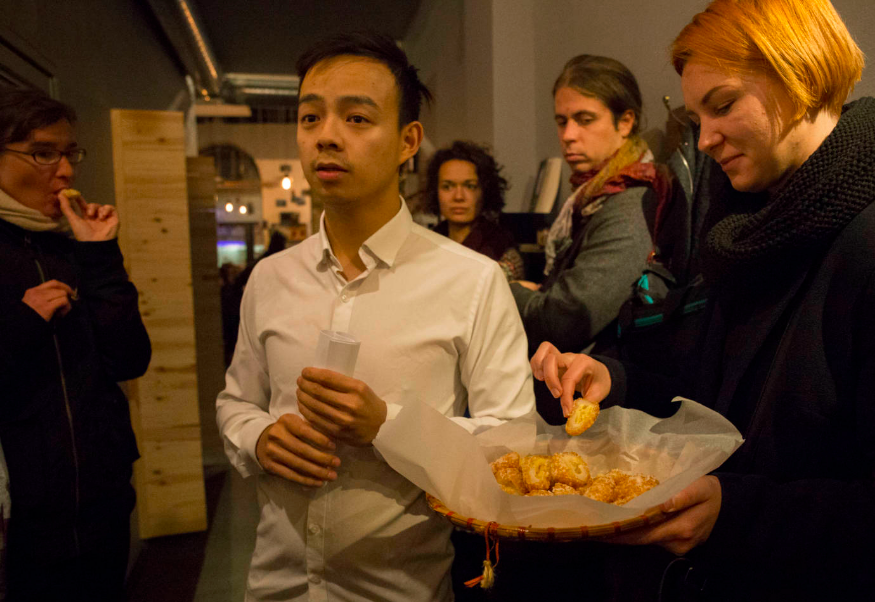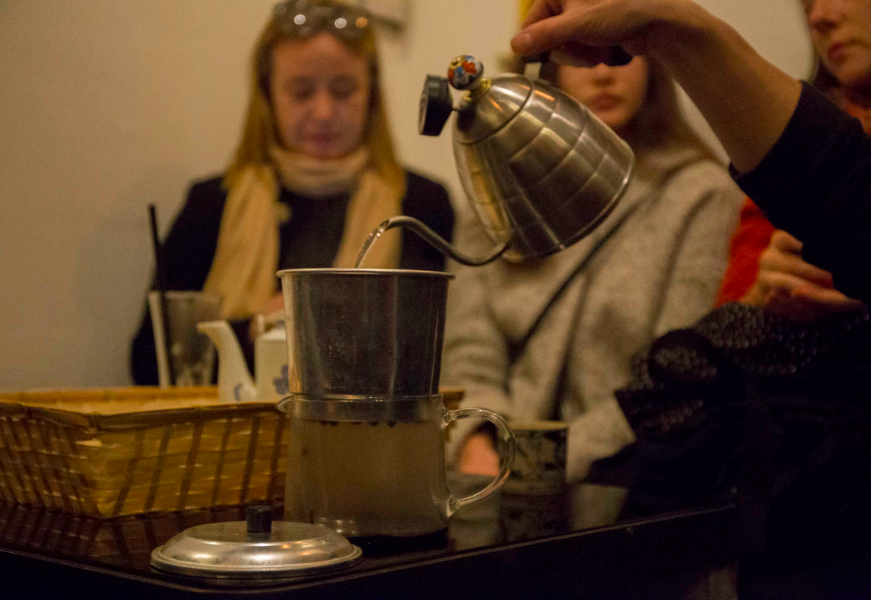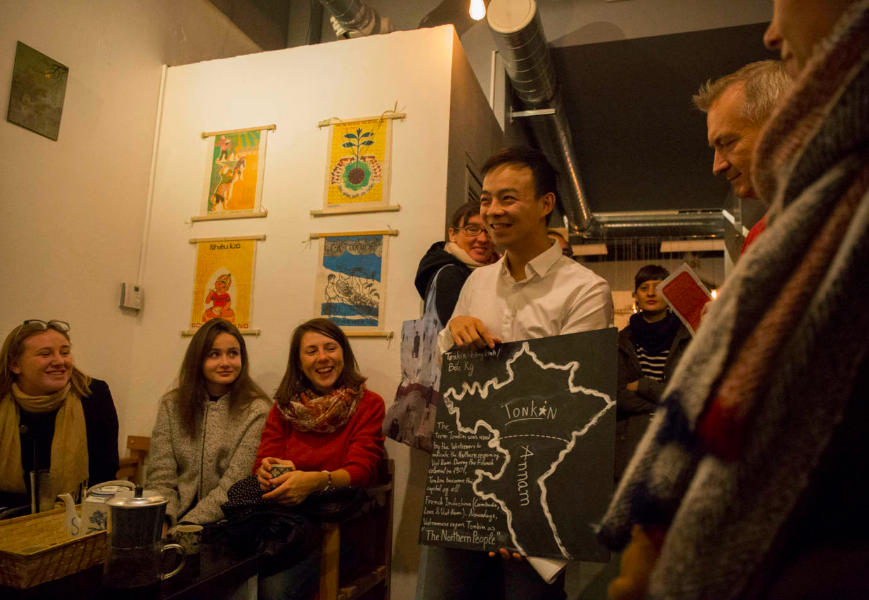“In general, I think Vietnamese cafes and Vietnamese coffee are quickly integrating into Czechs minds.”
Coffee with condensed milk and ice? Excellent! Come and see for yourself at one of Prague’s Vietnamese cafes, opened in 2017 by two childhood friends from Vietnam, who met in the Czech Republic in a camp for Vietnamese children.
“We liked coffee so much that we went for it,” says one of the business owners. Tonkin (Dong Kinh) means “Eastern Capital”, which was one of the administrative territories of French Indochina and included the northern part of Vietnam and part of Laos.
The intention of the owners, who come from the north of Vietnam, is not just to sell coffee, but to show customers what this part of the country is all about. The café also works as a shop and bistro.
You can buy organic food, ingredients for making Vietnamese dishes or products from local businesses and farmers. They serve coffee with homemade desserts, and visitors can also play games. Once a month, there is an acoustic open mic, where anyone can sing or play their instrument.
Tonkin Kafé occasionally holds events or exhibitions to bring Vietnamese culture closer to the Czechs.
Do you think that Czechs are interested in Vietnamese coffee?
Tung Vuong: From my point of view it takes the Czech majority a bit longer to get used to something. The Czechs are quite conservative about new things. When Vietnamese cuisine was introduced in the Czech Republic, people were not interested, and they did not know what it was. But when more and more Vietnamese restaurants opened, the Czechs suddenly became more interested, mainly because Vietnamese cuisine is healthy and based on a lot of herbs and vegetable salads. I think Vietnamese cafes and Vietnamese coffee, in general, are quickly integrating into Czechs minds.
It is well known that Vietnamese parents have high demands on their children in terms of education and employment. So I wonder what your parents said when you decided to start a café?
Tung Vuong: We have already finished school, a master degree in English at Prague College. We studied mainly for our parents. Then, when we handed over our diplomas, we could do what we wanted. We are glad that we have fulfilled our “duty” and now whatever we do is up to us. When you finish college, and you are 19 or 20 years old, they can say their opinion, but you do it your way.
Within the Vietnamese community in our country, which is stratified across generations, how much do they understand each other?
Tung Vuong: From my point of view, this is a problem, and the Vietnamese community does nothing to make parents and children understand each other better. From my experience, I think those parents don’t plan to die here, live till they are old and retire here. They plan to work, earn something and return to Vietnam. That’s why they work so hard. In any case, we need to help these people integrate into our society to understand that this is their new home, their second home.

Photography © Alžběta Diringerová

Photography © Alžběta Diringerová

Photography © Alžběta Diringerová

